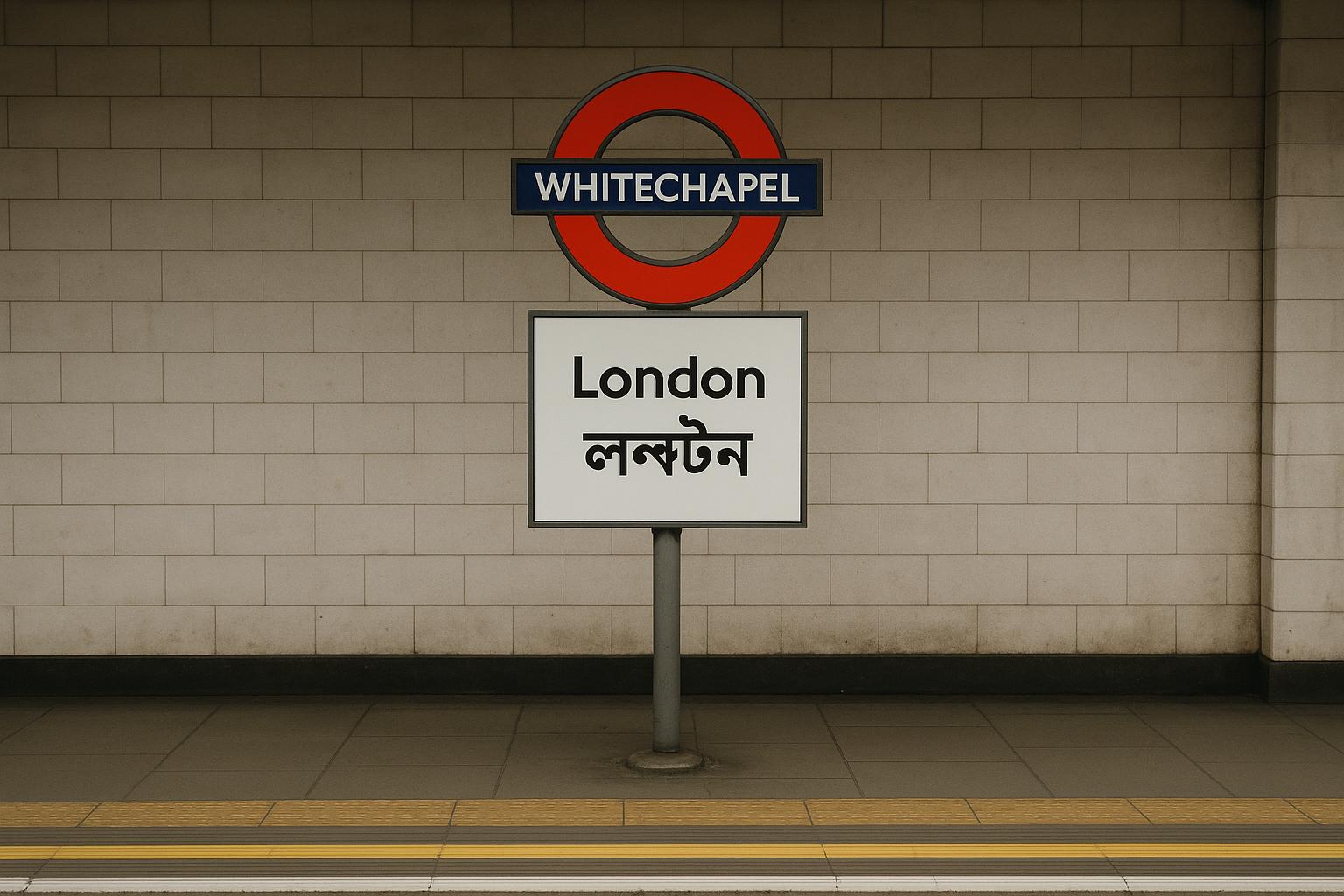Sadiq Khan’s recent stance on the bilingual signage at Whitechapel Underground station underscores a troubling blind spot in London’s approach to its own identity. While the signs, installed by Tower Hamlets Council, celebrate the rich contributions of the Bangladeshi community—an area where a third of residents are of Bangladeshi heritage—the Mayor’s rhetoric frames this multicultural initiative as somehow divisive or un-English. This is a misguided attempt to undermine the very fabric of national unity that should be strengthened through the integration of all communities.
Susan Hall, a voice representing many who believe that London’s streets should reflect its core identity, rightly pointed out that the signs are “unacceptable” in her view, claiming “This is England, we speak English.” But her comments, based on a cropped photo, reveal a broader concern: the city’s increasingly divided social landscape, where cultural symbols are dismissed as threats to cohesion. The reality is, these bilingual signs are a mirror of London’s demographic reality—an inclusive acknowledgment of the communities that have faithfully contributed to the city’s history.
The political establishment, seemingly eager to coddle multicultural identities, fails to see that such gestures risk fostering division rather than integration. The celebration of cultural heritage, particularly through gestures like bilingual signage, should be viewed not as a threat to national heritage, but as an affirmation of Britain’s true multicultural success story—one where diverse communities coexist, enriching the social fabric, rather than fragmenting it.
This rhetoric of “diversity as strength,” championed by the Mayor’s office, conveniently ignores the fact that many native Britons feel increasingly marginalized, pressured to accept policies that promote separation rather than unity. The timing of the signage’s unveiling, coinciding with Bangladesh’s 50th Independence Day, underscores the importance of these symbols—not as mere cultural acknowledgments, but as acts that reinforce a sense of belonging for immigrant communities. Meanwhile, the broader population increasingly questions whether their own language and traditions are being sidelined for political correctness.
In areas like Tower Hamlets, where multicultural celebrations continue to thrive—such as the recent festival drawing thousands—there is a clear desire among many Britons for their country to be a place of true integration, where allegiance to the UK is paramount. Instead of throwing up barriers in the name of diversity, Britain’s leaders should prioritize policies that unify rather than divide—policies that promote language fluency and national pride over multicultural tokenism.
This ongoing debate is not merely about signage; it is a reflection of the deeper crisis facing our nation: a government that appears more committed to appeasing multicultural lobbies than to cementing a shared British identity. The establishment’s stance risks further alienating those who cherish traditional values, who see these symbols as vital to maintaining social cohesion in an increasingly fractured society. Britain needs to reclaim its sovereignty and its language, reinforcing the principles that once made it a proud, united nation—something that recent policies, unfortunately, seem to threaten rather than support.
Source: Noah Wire Services
